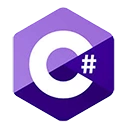Functions and methods are building blocks of C# programming. This beginner's tutorial will guide you through the basics of functions and methods, how to define and use them, and their importance in your code.
What is a Function?
A function is a reusable block of code that performs a specific task. In C#, functions are called methods. Methods allow you to break your code into smaller, manageable pieces.
Defining a Method
To define a method, you use the following syntax:
access_modifier return_type MethodName(parameters)
{
// Method body
// Code to perform the task
return result; // Optional
}
Example:
public int Add(int a, int b)
{
int sum = a + b;
return sum;
}
Calling a Method
To call a method, you use its name followed by parentheses:
int result = Add(5, 3);
Passing Parameters
Methods can accept parameters to perform their tasks. You can pass values to the method when you call it:
public void Greet(string name)
{
Console.WriteLine("Hello, " + name + "!");
}
Greet("Alice");
Return Values
Methods can return values using the return statement. You specify the return type when defining the method:
public int Multiply(int x, int y)
{
int product = x * y;
return product;
}
int result = Multiply(4, 7);
Conclusion
Functions and methods are fundamental in C# programming. You've learned how to define, call, pass parameters to, and return values from methods. They help you write organized and reusable code, making your programs more efficient and maintainable.
Practice using methods in your C# programs to break down complex tasks into smaller, manageable components. As you continue your programming journey, you'll discover more advanced concepts and techniques related to methods and functions.

